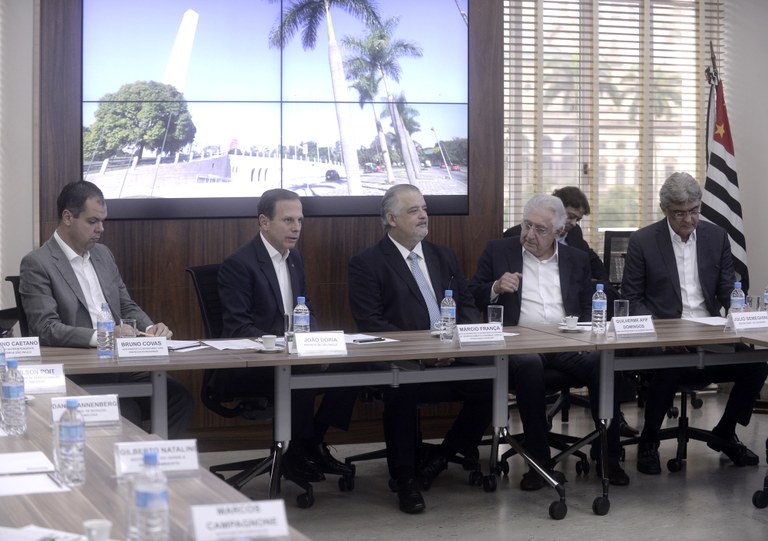São Paulo City Hall launched on March 6th the program “Empreenda Fácil”, which will reduce up to a week the deadline for starting and licensing businesses. Previously, this process took more than 100 days. The main purpose is to facilitate the creation of new enterprises in the city, hence eliminating bureaucracy. For the most part, the process will be be done online, without the need for the entrepreneur to be displaced between different public agencies.

São Paulo Mayor João Doria says: “We’re rapidly moving towards that which is possible at the moment. The reduction to an initial deadline of 5 days, and afterwards 2 working days to start a microenterprise in São Paulo. It’s a higher standard than that of the international one, but it is a compromise that we’re taking henceforth”.
A partnership between Federal, State and Municipal governments, the project achieves the new administration’s goal of transforming São Paulo in a business-friendly city. The state capital registers the opening of approximately 250 companies daily. According to SP Negócios (São Paulo Business), 80% of the city’s economic activities are done by low risk-companies, which are the ones who will benefit from the new system at this first stage.
Low risk entrepreneurships are considered to be those located in buildings withless than 1,500 sq. m. of constructed area, or those in areas of up to 500 sq. m., regardless of the building’s capacity, as long as they don’t require specific licensing, such as an environmental one. In a second phase, electronic solutions are going to be developed to reduce deadlines for the opening of high risk-companies, licensing requests of existing companies and the closing of establishments.
Apart from the celerity of the process caused by the reduction of bureaucracy, Easy Entrepreneurship contributes towards the reduction of eventual frauds and irregularities, data filled out in duplicity, and with registration divergences.
“This modernization confers international visibility to the city, as it is estimated that São Paulo’s entering will allow Brazil to improve its classification in the ranking that evaluates business-and-investments-friendly markets, the Doing Business”, affirms the Mayor João Doria. One of the main publications of the World Bank, the Doing Business analyzes each year the laws and regulations that facilitate or hamper with activities of companies in each economy. The document places Brazil in 175th, out of 190 researched countries.
Easy Entrepreneurship involves on the Municipal sphere the participation of the Secretariats of Treasury, Innovation and Technology, Work and Entrepreneurship, Urbanism and Licensing, Culture, Green and Environment, Health, Management, and also of the Regional Prefectures, SP Negócios and Prodam (São Paulo City Data Processing Company). Representing the State Government in the program there are the Secretariats of Treasury, Economic Development, Science, Technology and Innovation, the São Paulo Commercial Board, and the licensing state agencies (Fire Department, Sanitary Surveillance and Cetesb–Environmental Company of the State of São Paulo).
The Vice-governor of São Paulo State, Márcio França, highlighted the importance of having a program such as this one in the capital. “When you think of starting a company, people immediately become grouchysaying that you will lose 100 days just to open one, due to the authorizations. The proposal is to do this in a much smaller time frame. Today, more than 150 cities of the state of São Paulo already make the creation of companies in 48 hours, and it was inadmissible that São Paulo’s capital, a world reference and model city, continued with this backward model”, he stated.
On the Federal level, institutions such as the Secretariat of the Federal Revenue of Brazil, the Special Secretariat of Micro and Small Enterprises, and Serpro (Federal Data Processing Service), as well as Sebrae (Brazilian Support Service for Micro and Small Enterprise) are participants of the project. For Sebrae’s president, Guilherme Afif Domingos, facilitating process of starting business is one of most important advances in the General Law of Micro and Small Enterprises, which estimates several different measures of simplification and improvement of the business environment. “The big bottleneck was always getting the permit for operation. Without previous inspection for the low risk cases, all the process can be automatized”.


